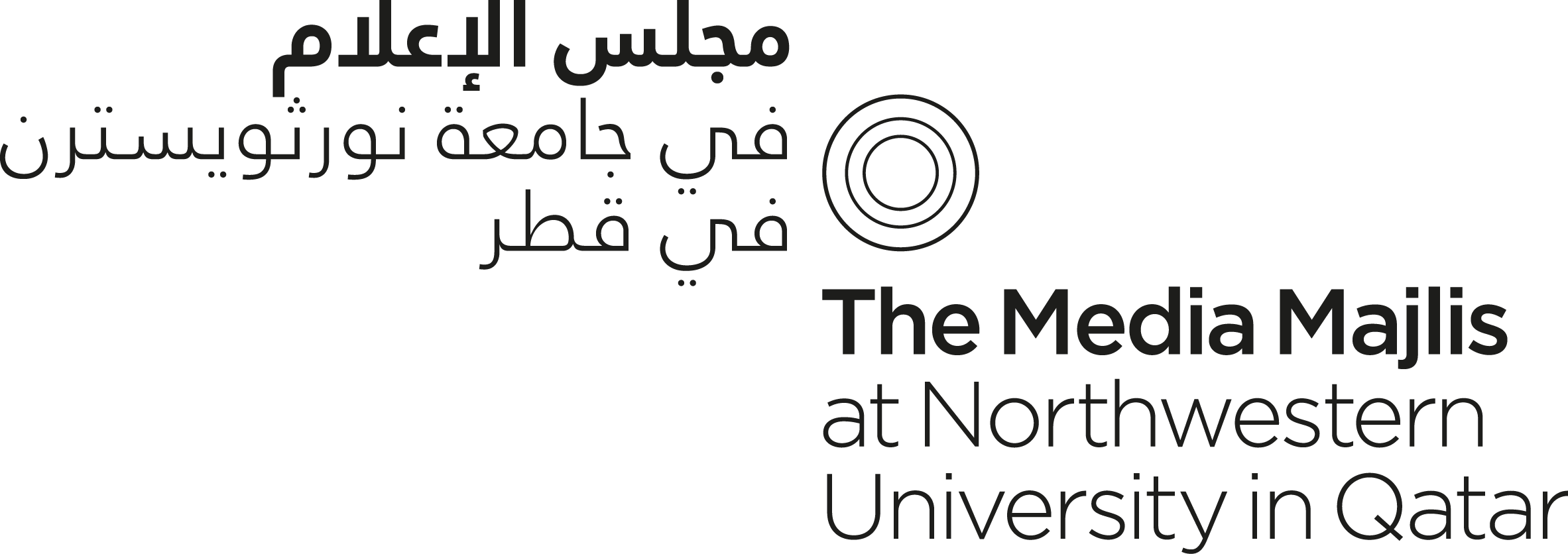
A video recording of this program is now available on the Explore Content section of this website.
In a community with no film schools and little investment in film, how do you become a filmmaker?
No ‘Arab filmmaker’ experience is ever the same but in this discussion, moderated by Northwestern University in Qatar’s Scott Curtis, we explore the experience of filmmakers Hend Fakhroo, Amin Matalqa and Omar Al-Dakheel and the industries they’ve worked in. While Arab filmmakers have a shared journey, they certainly do not have a shared experience. Each of them began their careers quite differently and each has had different opportunities along the way. From Omar Al-Dakheel covering the stories of Arabs in Los Angeles, to Amin Matalqa casting refugees in his feature film Captain Abu Raed (2007) to Hend Fakhroo’s first film being accepted into the Cannes Film Festival. Reflect, compare and contrast your careers and join in on the discussion of how the trajectories and career paths of these filmmakers have changed over the years.
[Image from Captain Abu Raed (2007) directed by panel member Amin Matalqa. Image courtesy of AF Archive and Alamy Stock Photo.]
-
Venue accessibility
-
Simultaneous translation
Simultaneous translation (Arabic/English) is provided for all programs.
-
Wheelchair accessibility
The Projection Theatre is fully wheelchair accessible and features multiple wheelchair spaces with unobstructed views of the stage and screen.
-
Sign Language interpretation
Sign Language interpretation (ASL and ArSL) may be requested for talks, discussions, lectures and tours. Please contact the museum well in advance of the program to discuss this service. You are welcome to bring an interpreter with you—please let us know ahead of time and we will ensure that appropriate seating is reserved. A program ticket does not need to be purchased for an interpreter providing prior notification of their attendance at a specific program is provided to the museum.
-
Wifi
Free wifi access is available in the building. On your mobile device, with wifi switched on, select Guest-NUQ-Majlis from the available services and accept the terms of service to connect.
-
-
Program credits
Scott Curtis
Scott Curtis (moderator) studies the history of film, especially early and silent-era cinema. He is particularly interested in how experts in science, medicine, and education use motion picture technology as a research tool or teaching aid, and has published extensively on the use of motion pictures in a variety of scientific fields, such as biology, physics, psychology, and medicine. He has also written on more traditional topics in film history, including animation; early German film and theory; industrial film; film sound; and Alfred Hitchcock. Prior posts have included the research archivist for the Special Collections Department of the Academy of Motion Picture Arts and Sciences’ Margaret Herrick Library, and as a lecturer for the Cinema and Media Studies program of the University of Southern California. He is the founder of Block Cinema at Northwestern’s Evanston campus, former co-chair of Chicago Film Seminar, and former President of Domitor, the international society for the study of early cinema.
Amin Matalqa
Amin Matalqa was born in Jordan, raised in Ohio, and has been living in Los Angeles for the past 16 years. After graduating from the American Film Institute with an MFA in Directing, his first feature film, Captain Abu Raed (which he wrote, directed and produced) won the Sundance Film Festival World Audience Award in 2008, and became Jordan’s first Oscar entry for Best Foreign Film. His next film was Disney’s soccer drama The United (2012); followed by the romantic comedy, Strangely In Love (2014); and the action adventure, The Rendezvous (2016), starring Stana Katic. On television, he recently completed co-writing the pilot and directing two episodes of Netflix’s first Arabic original series, the supernatural show Jinn (2019).
Omar Dakheel
Omar Al-Dakheel was born and raised in Kuwait, moving to the US at 17 after receiving a full merit scholarship to the University of Miami. After graduating with a BA in Theatre Arts and a BS in Broadcast Journalism, he went on to earn his MFA at the USC School of Cinematic Arts where he immersed himself in all aspects of filmmaking and graduated in the summer of 2017. Al-Dakheel directed the film al imam (2016), which premiered at the Hot Springs Doc Film Festival and subsequently acquired by National Geographic. He is also the director of the short fiction film Ablution (2017) which has appeared in over sixty film festivals. His latest documentary film Jihad in Hollywood (2016, co-producer) is available on Al Jazeera Documentaries Arabic channel. His goal is to tell diverse stories with universal values that can bridge the gap between the East and the West.
Hend Fakhroo
Hend Fakhroo is a Qatari writer and director. Following her graduation with honors in 2005 with a marketing degree from St Edward’s University in Austin, Texas, her first short film, His Name (2012), screened at various international festivals, including Cannes. Her second film, The Waiting Room (2016), was selected in competition at five international film festivals, and won Best Drama at the Mexico International Film Festival. Her first feature film will begin shooting at the end of 2019.
